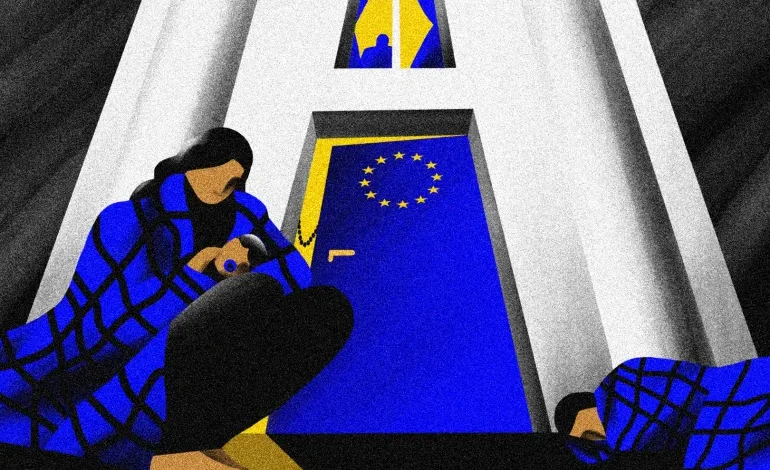Can asylum seekers in Europe survive the cost-of-living crisis?

Towards the end of 2021, governments across Europe had scarcely eased their COVID-19 restrictions when the continent was gripped by a new problem: a cost-of-living crisis caused by soaring prices and low wage growth over the past decade.
From 2022, the war in Ukraine threw global supply chains into further disarray, leading to surging inflation. In January this year, consumer prices in the United Kingdom rose by 10.1 percent and across the eurozone by 8.5 percent.The crisis has shown no signs of abating. But while there is copious data on how spiralling costs have overwhelmed low-income households across Europe, the scale and nature of their impact on asylum seekers and undocumented people – already victims of systemic inequalities – remain relatively unclear.
There are more than 2 million asylum seekers in the European Union alone, many of whom have undertaken treacherous journeys to escape conflict and persecution from countries like Syria, Iraq and Afghanistan. They often have no access to mainstream financial services and face severe legal and practical barriers to participating in the economy while awaiting decisions on their refugee status.
And in the UK, experts have warned that legislation to stop the entry of people coming to the country through irregular channels and bar them from ever returning again could expose desperate asylum seekers to even more economic and social exploitation.
So just how badly are asylum seekers and undocumented people suffering from the cost-of-living crisis? Are some groups particularly vulnerable? And what can be done to help them?
The short answer: Food poverty and labour exploitation are hitting asylum seekers harder than citizens, researchers and advocacy groups told Al Jazeera. Women, especially mothers, have found their needs falling through the gaps. But these problems can be eased through a number of strategies aimed at socioeconomic integration – and examples of hope already exist.Work? Sorry. Benefits? Sorry
In the UK, asylum seekers are generally barred from work until they have attained refugee status. If they do not receive an initial decision on their asylum claims within 12 months, they may apply for jobs only on a list determined by the Home Office to be in short supply in Britain, including nurses, social workers and engineers. Although the Home Office says asylum claims are usually processed in six months, the Refugee Council charity published a report in 2021 showing that the average wait time for even an initial decision is likely to be one to three years with some waiting up to five years. Advocacy groups estimate that this waiting time has not decreased since then.
Asylum seekers who report being destitute are provided with accommodation but cannot choose where they live. They are entitled to a 45-pound ($54) weekly allowance to buy essentials. It is an amount that works out to 2,340 pounds ($2,808) a year. This is less than a tenth of the 25,500 pounds ($30,000) that the Joseph Rowntree Foundation, the poverty alleviation charity, recommends as necessary for a minimum acceptable annual standard of living although this sum includes housing, which destitute asylum seekers do not need to pay for.
What’s worse, experts told Al Jazeera, is that there are usually long delays for asylum seekers to receive this allowance. Many wait up to a year.Likewise, information from the Asylum Information Database indicates that most of the 23 European countries it covers, from Austria to Turkey, do not offer more than small stipends to asylum seekers on top of basic housing and food. Often these stipends are just a fraction of benefits that residents and citizens would get.
For example, in Sweden, one of the wealthiest countries in Europe, an asylum-seeking family with two adults and four children would get 804.69 euros ($859.05) in allowance, compared with the 2,286 euros ($2,440.43) that a “settled” family on social welfare receives. Similarly in the Netherlands, asylum seekers are given 30 percent of the social welfare allowance for Dutch citizens.
Poverty among asylum seekers is compounded by inadequate living conditions in deprived areas and deteriorating mental health owing to uncertainties over their immigration status.
The estimated 681,200 undocumented non-EU citizens living in the bloc are exposed to even greater precarity than asylum seekers because they have no access to benefits.
Among the gravest consequences of this crisis is an epidemic of food poverty.










